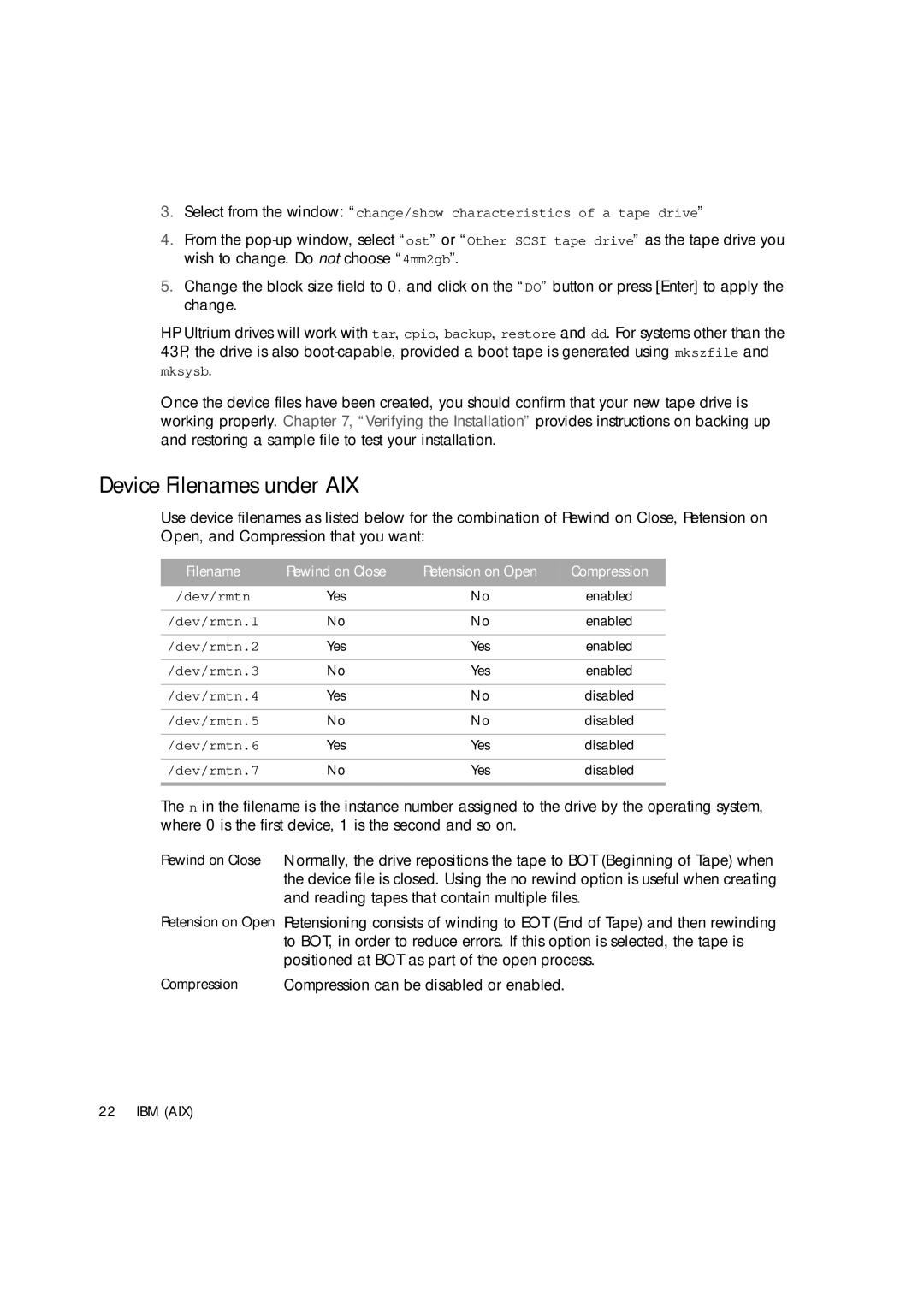3.Select from the window: “change/show characteristics of a tape drive”
4.From the
5.Change the block size field to 0, and click on the “DO” button or press [Enter] to apply the change.
HP Ultrium drives will work with tar, cpio, backup, restore and dd. For systems other than the 43P, the drive is also
mksysb.
Once the device files have been created, you should confirm that your new tape drive is working properly. Chapter 7, “Verifying the Installation” provides instructions on backing up and restoring a sample file to test your installation.
Device Filenames under AIX
Use device filenames as listed below for the combination of Rewind on Close, Retension on Open, and Compression that you want:
Filename | Rewind on Close | Retension on Open | Compression |
|
|
|
|
/dev/rmtn | Yes | No | enabled |
|
|
|
|
/dev/rmtn.1 | No | No | enabled |
|
|
|
|
/dev/rmtn.2 | Yes | Yes | enabled |
|
|
|
|
/dev/rmtn.3 | No | Yes | enabled |
|
|
|
|
/dev/rmtn.4 | Yes | No | disabled |
|
|
|
|
/dev/rmtn.5 | No | No | disabled |
|
|
|
|
/dev/rmtn.6 | Yes | Yes | disabled |
|
|
|
|
/dev/rmtn.7 | No | Yes | disabled |
|
|
|
|
The n in the filename is the instance number assigned to the drive by the operating system, where 0 is the first device, 1 is the second and so on.
Rewind on Close Normally, the drive repositions the tape to BOT (Beginning of Tape) when the device file is closed. Using the no rewind option is useful when creating and reading tapes that contain multiple files.
Retension on Open Retensioning consists of winding to EOT (End of Tape) and then rewinding to BOT, in order to reduce errors. If this option is selected, the tape is positioned at BOT as part of the open process.
Compression Compression can be disabled or enabled.
22 IBM (AIX)
